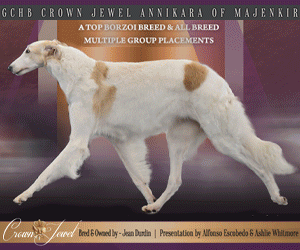Understanding Gallbladder Mucocele in Dogs
By Sharon Albright, DVM, CCRT Manager of Communications & Veterinary Outreach, AKC Canine Health Foundation
 You may have never heard of a gallbladder mucocele, but it is an increasingly common disease in dogs with severe consequences. The gallbladder is a small organ tucked within the liver lobes in the abdomen. Its main function is to store and secrete bile into the small intestine to help the body digest fats and fat-soluble vitamins. A mucocele forms when the gallbladder lining secretes too much of an abnormally thick mucus, blocking bile flow into the small intestine. This causes the gallbladder to fill with thick mucus, become inflamed, and potentially rupture, leading to a life-threatening emergency. The only definitive treatment is surgery to remove the gallbladder, but it comes with significant risks. Medical management using medications that thin bile secretions and treat secondary bacterial infections can be attempted, but the disease can be fatal in up to 40% of cases.
You may have never heard of a gallbladder mucocele, but it is an increasingly common disease in dogs with severe consequences. The gallbladder is a small organ tucked within the liver lobes in the abdomen. Its main function is to store and secrete bile into the small intestine to help the body digest fats and fat-soluble vitamins. A mucocele forms when the gallbladder lining secretes too much of an abnormally thick mucus, blocking bile flow into the small intestine. This causes the gallbladder to fill with thick mucus, become inflamed, and potentially rupture, leading to a life-threatening emergency. The only definitive treatment is surgery to remove the gallbladder, but it comes with significant risks. Medical management using medications that thin bile secretions and treat secondary bacterial infections can be attempted, but the disease can be fatal in up to 40% of cases.
We do not understand canine gallbladder mucocele well. The fact that certain dog breeds are predisposed to mucocele formation suggests that genetic factors are involved. Age is also a risk factor, as the disease is more common in older dogs. To explore why and how gallbladder mucoceles form, the AKC Canine Health Foundation (CHF) and its donors have invested more than $400,000 to study this disease. Identifying the cause of mucocele formation could lead to prevention and new treatment strategies, ultimately improving outcomes for affected dogs and their families. Since gallbladder mucocele is a multi-factorial disease, researchers are studying several aspects of disease development:
• Metabolic Abnormalities – CHF-funded research showed that many dogs with gallbladder mucocele had hypothyroidism, high fat levels in the blood, Cushing’s disease (excess cortisol production), and/or abnormal urinary protein loss. Research is underway to determine if treating these metabolic abnormalities can stop, slow, or reverse mucocele formation.
• Environmental Toxins – Initial studies also identified environmental toxins potentially associated with mucocele formation in dogs. Data analysis is exploring how these toxins may adversely impact gallbladder function. • Inflammation – A new CHF-funded study aims to help veterinarians identify dogs with gallbladder mucocele that are likely to decompensate and become critically ill. Researchers are evaluating if blood levels of C-reactive protein, a marker of systemic inflammation, can predict clinical decline.
These studies provide an increasingly detailed picture of which dogs are likely to develop gallbladder mucocele and those that will require more aggressive therapy. The results provide veterinarians and owners with actionable information to correct and monitor underlying metabolic disorders and potentially avoid harmful toxin exposures. CHF will share the findings of these ongoing studies to improve the health of all dogs affected by gallbladder mucocele.
Learn more about this important work at akcchf.org/research.
Short URL: http://caninechronicle.com/?p=298061
Comments are closed












